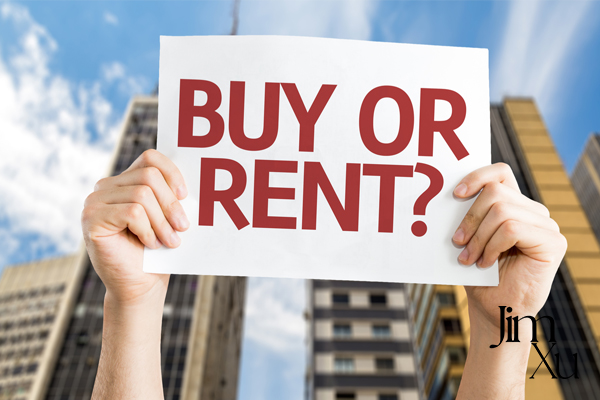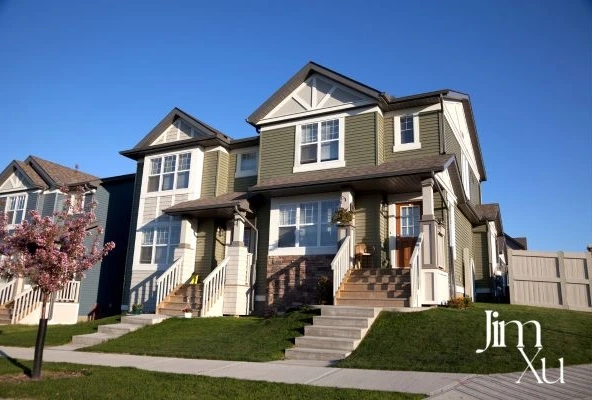Deciding whether to rent or buy a home is a significant financial decision that affects your lifestyle and finances. This guide will help you weigh the pros and cons of renting vs buying a home.
Renting vs Buying a Home
Deciding whether to rent or buy a home is a major financial and lifestyle choice. Each option has its own set of advantages and disadvantages. This overview will help you understand the key differences between renting and buying a home.
Renting a Home
Renting a home means living in a property owned by someone else. You pay the owner, or landlord, a monthly rent to live there.
Pros of Renting
Flexibility: Renting allows you to move easily, making it ideal for those who may need to relocate frequently for work or personal reasons.
Lower Upfront Costs: Renting typically requires only a security deposit and the first month’s rent, unlike the substantial down payment required when buying a home.
Less Responsibility: Maintenance and repairs are usually the landlord’s responsibility, saving you time and money.
Access to Amenities: Many rental properties offer amenities like swimming pools, fitness centers, and communal spaces that might be too costly to own.
Cons of Renting
No Equity Building: Monthly rent payments do not contribute to home ownership or build your personal equity.
Potential for Rent Increases: Rent prices can increase over time, which can impact your budget.
Limited Control: Renters often have restrictions on how much they can personalize or modify their living space.
Uncertainty: Landlords can decide to sell the property or not renew your lease, potentially forcing you to move.
Read more: What Is a Studio Apartment?

Buying a Home
Buying a home involves purchasing property to own and live in. This usually requires obtaining a mortgage and making regular payments to pay off the loan.
Pros of Buying
Equity Building: Mortgage payments build equity over time, which can contribute to your financial stability and net worth.
Stability: Fixed-rate mortgages offer predictable monthly payments, providing financial stability.
Freedom to Renovate: Homeowners have the freedom to make changes and improvements to their property.
Potential Tax Benefits: Homeowners may benefit from tax deductions on mortgage interest and property taxes.
Cons of Buying
High Upfront Costs: Buying a home requires a significant down payment, closing costs, and other fees.
Maintenance and Repairs: Homeowners are responsible for all maintenance and repair costs, which can be substantial.
Less Flexibility: Selling a home can be a lengthy and complex process, making it harder to move quickly if needed.
Market Risk: Property values can decrease, leading to potential financial loss.
Read more: Different Types Of Houses In Canada In 2024
Factors to Consider in the Rent vs Buy Decision
Deciding whether to rent or buy a home involves weighing various factors that can impact your finances, lifestyle, and long-term plans. Here are the key factors to consider when making your rent vs buy decision.
- Financial Situation
- Savings and Down Payment
Renting: Requires a security deposit and the first month’s rent, making it a lower upfront cost.
Buying: Requires a substantial down payment, typically 10-20% of the home’s purchase price, along with closing costs.
- Monthly Budget
Renting: Monthly rent payments are usually predictable, but can increase with lease renewals.
Buying: Mortgage payments can be fixed with a fixed-rate mortgage, but you also need to budget for property taxes, homeowner’s insurance, and maintenance.
- Credit Score
Renting: Landlords often check credit scores, but requirements are generally less stringent than for a mortgage.
Buying: A good credit score is crucial for securing a mortgage with favorable terms.
- Long-term Plans
- Duration of Stay
Renting: Ideal for short-term living or if you plan to move frequently. Lease terms are typically one year, allowing for flexibility.
Buying: Better suited for those planning to stay in the same place for several years, as it can take time to recoup the costs of buying.
- Career Stability
Renting: Offers flexibility if your job requires you to relocate often.
Buying: More suitable if you have a stable job and foresee staying in the same area long-term.
- Market Conditions
- Real Estate Market Trends
Renting: Allows you to avoid the risks associated with fluctuating property values.
Buying: Can be beneficial if property values are expected to increase, building equity over time.
- Interest Rates
Renting: Not affected by interest rates.
Buying: Lower interest rates can make buying more affordable, reducing monthly mortgage payments.
- Personal Preferences
- Lifestyle
Renting: Provides more flexibility and less responsibility. Ideal for those who prefer to avoid maintenance and repairs.
Buying: Offers stability and the ability to personalize your home. Suitable for those who want a permanent place to settle down.
- Maintenance and Repairs
Renting: The landlord handles most maintenance and repair issues, which can save you time and money.
Buying: Homeowners are responsible for all maintenance and repairs, which can be costly and time-consuming.
- Future Investment
- Equity Building
Renting: Does not build equity; money spent on rent does not contribute to ownership.
Buying: Mortgage payments contribute to building equity in your home, potentially increasing your net worth over time.
- Tax Benefits
Renting: Rent payments do not provide tax benefits.
Buying: Homeowners may benefit from tax deductions on mortgage interest and property taxes, potentially lowering their overall tax burden.
Read More: What Is a Rent Concession

Read more: 10 Tips For Buying A First Time Home – A First-Time Buyer’s Guide
Conclusion
Deciding whether to rent or buy a home is a significant decision that requires careful consideration of various factors. Both options have their advantages and disadvantages, and the right choice depends on your individual circumstances and goals.






